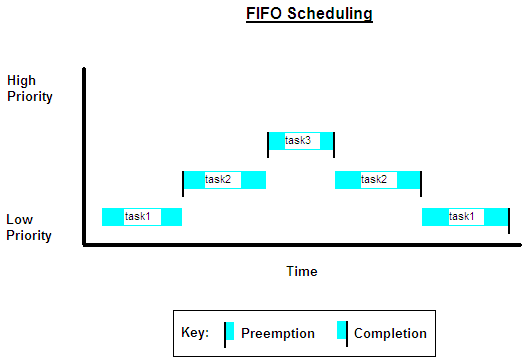Linux Task
Spawn task function as separate Linux thread
Add-On Required: This feature requires the Embedded Coder Support Package for AMD SoC Devices add-on.
Libraries:
Embedded Coder Support Package for AMD SoC Devices
Description
Use this block to create a task function that spawns as a separate Linux® thread. The task function runs the code of the downstream Function-Call Subsystem block.
Examples
Get Started with Embedded Coder Support Package for AMD SoC Devices
Generate code from a Simulink® model and run the executable on an AMD Zynq® board.
Ports
Output
A function-call control signal that triggers a Function-Call Subsystem block.
Parameters
To edit block parameters interactively, use the Property Inspector. From the Simulink® Toolstrip, on the Simulation tab, in the Prepare gallery, select Property Inspector.
To set the block parameter value programmatically, use
the set_param function.
To get the block parameter value
programmatically, use the get_param function.
Assign a name to this task. You can enter up to 32 letters and numbers. Do not use
standard C reserved characters, such as the / and
: characters.
Programmatic Use
Block Parameter:
taskName
|
Select the scheduling policy that applies to this thread. You can choose from these options:
SCHED_FIFO— This option enables a first-in, first-out (FIFO) scheduling algorithm that executes real-time processes without time slicing. With FIFO scheduling, a higher-priority process preempts a lower-priority process. The lower-priority process remains at the top of the list for its priority and resumes execution when the scheduler blocks all higher-priority processes.For example, in the FIFO scheduling image, task2 preempts task1. Then, task3 preempts task2. When task3 completes, task2 resumes. When task2 completes, task1 resumes.

Selecting
SCHED_FIFOdisplays the Thread priority parameter, which you can set to a value from 1 to 99.SCHED_OTHER— This option enables the default Linux time-sharing scheduling algorithm. You can use this scheduling for all processes except those requiring special static priority real-time mechanisms. With this algorithm, the scheduler chooses processes based on their dynamic priority within the static priority 0 list. Each time the process is ready to run and the scheduler denies it, the operating system increases the dynamic priority of that process. Such prioritization helps the scheduler serve theSCHED_OTHERprocesses.Selecting
SCHED_OTHERhides the Thread priority parameter and sets the thread priority to 0.
Programmatic Use
Block Parameter:
taskPolicy
|
Specify the priority of the Linux thread. A value of 1 indicates a low priority, and a value of 99 indicates a high priority. Higher-priority tasks can preempt lower-priority tasks.
To enable this parameter, set Thread scheduling policy to
SCHED_FIFO.
Programmatic Use
Block Parameter:
taskPriority
|
Version History
Introduced in R2013a
See Also
MATLAB Command
You clicked a link that corresponds to this MATLAB command:
Run the command by entering it in the MATLAB Command Window. Web browsers do not support MATLAB commands.
Seleziona un sito web
Seleziona un sito web per visualizzare contenuto tradotto dove disponibile e vedere eventi e offerte locali. In base alla tua area geografica, ti consigliamo di selezionare: .
Puoi anche selezionare un sito web dal seguente elenco:
Come ottenere le migliori prestazioni del sito
Per ottenere le migliori prestazioni del sito, seleziona il sito cinese (in cinese o in inglese). I siti MathWorks per gli altri paesi non sono ottimizzati per essere visitati dalla tua area geografica.
Americhe
- América Latina (Español)
- Canada (English)
- United States (English)
Europa
- Belgium (English)
- Denmark (English)
- Deutschland (Deutsch)
- España (Español)
- Finland (English)
- France (Français)
- Ireland (English)
- Italia (Italiano)
- Luxembourg (English)
- Netherlands (English)
- Norway (English)
- Österreich (Deutsch)
- Portugal (English)
- Sweden (English)
- Switzerland
- United Kingdom (English)
